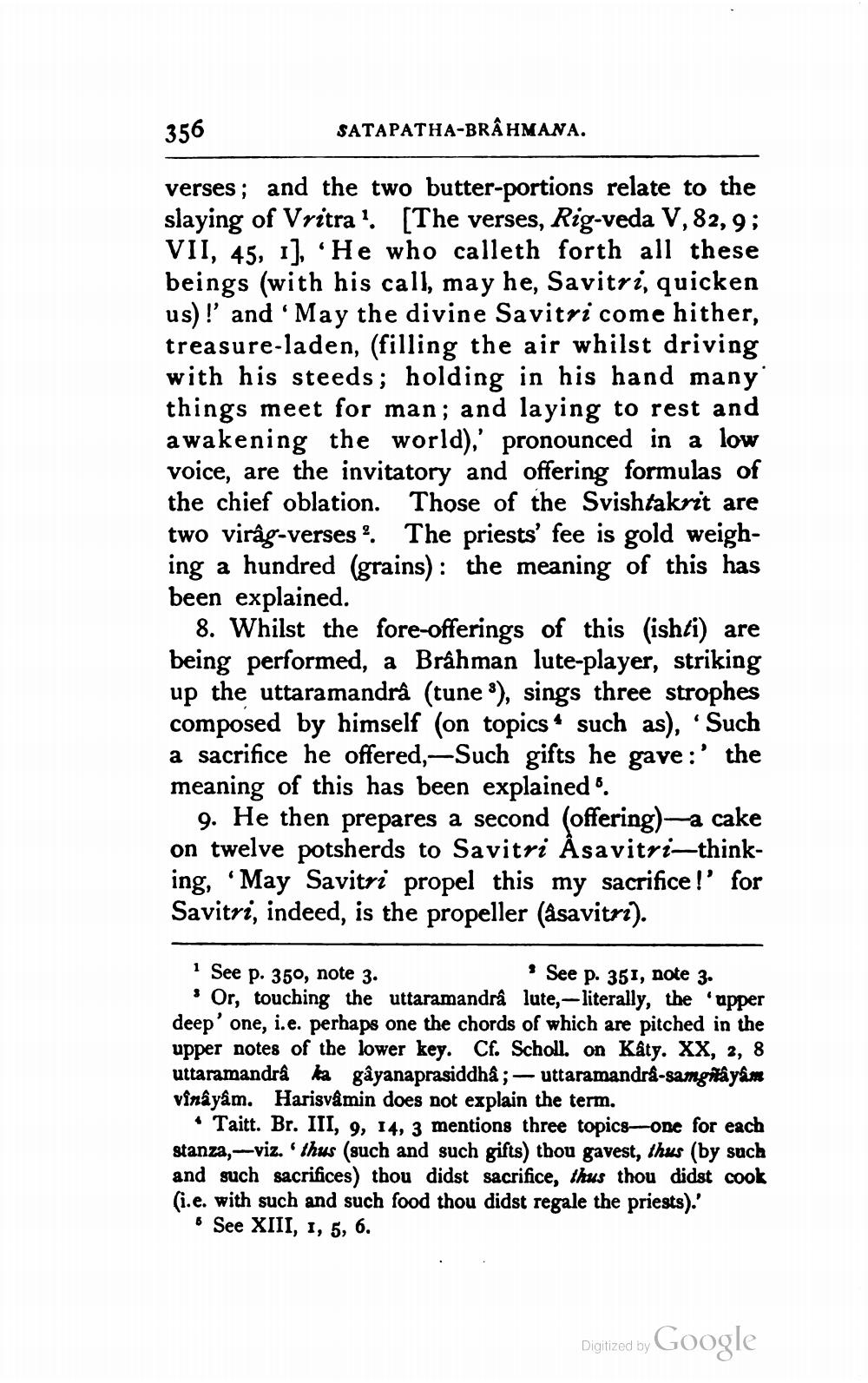________________
356
SATAPATHA-BRAHMANA.
verses; and the two butter-portions relate to the slaying of Vritra". [The verses, Rig-veda V, 82,9; VII, 45, 1], 'He who calleth forth all these beings (with his call, may he, Savitri, quicken us)!' and `May the divine Savitri come hither, treasure-laden, (filling the air whilst driving with his steeds; holding in his hand many things meet for man; and laying to rest and awakening the world),' pronounced in a low voice, are the invitatory and offering formulas of the chief oblation. Those of the Svishtakrit are two virág-verses. The priests' fee is gold weighing a hundred (grains): the meaning of this has been explained.
8. Whilst the fore-offerings of this (ishti) are being performed, a Brâhman lute-player, striking up the uttaramandrà (tune *), sings three strophes composed by himself (on topics * such as), Such a sacrifice he offered, -Such gifts he gave :' the meaning of this has been explained.
9. He then prepares a second (offering)--a cake on twelve potsherds to Savitri Åsavitri-thinking, ‘May Savitri propel this my sacrifice!' for Savitri, indeed, is the propeller (åsavitri).
1 See p. 350, note 3.
See p. 351, note 3. Or, touching the uttaramandrá lute, - literally, the upper deep' one, i.e. perhaps one the chords of which are pitched in the upper notes of the lower key. Cf. Scholl. on Kâty. XX, 2, 8 uttaramandra ka gâyanaprasiddhå; - uttaramandra-samgitayam vinâyâm. Harisvâmin does not explain the term.
• Taitt. Br. III, 9, 14, 3 mentions three topics—one for each stanza, ---viz. 'thus (such and such gifts) thou gavest, thus (by such and such sacrifices) thou didst sacrifice, thus thou didst cook (i.e. with such and such food thou didst regale the priests).'
6 See XIII, 1, 5, 6.
Digitized by Google




